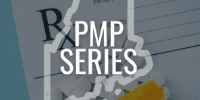Shop
Showing 1–9 of 167 results
-

06.20.23 | ME SUD Learning Community | Bipolar Disorder and SUDs
$0.00 Read MoreJune 20, 2023, 12:00 to 1:00 pm | Bipolar Disorder and SUDs | Stephanie Nichols, PharmD, BCPS, BCPP
-

2023.06.01 | ME SUD Learning Community | Nicotine Vaping – What Should Providers Tell Their Patients? What About that Cough?
$0.00 Read More -

2023.09.18-20 | Peer Support Leadership Continuing Education Session 1: Peer Support Supervision
$0.00 Read More -

2023.10.16-18 | Peer Support Leadership Continuing Education Session 2: Developing an Effective Team Culture in Peer Support Programs
$0.00 Read More -





2023.11.16-17 | Peer Support Leadership Continuing Education Session 3: Developing Strategic Partnerships in Peer Support Programs
$0.00 Read More -





2023.12.13-14 | Peer Support Leadership Continuing Education Session 4: Developing Peer Support Budgets
$0.00 Read More -


2nd Learndash test course
$0.00 Read More -


April 1, 2024 | PMP Series | Staying Current: Updates to the BEERS Criteria
$0.00 Read More -





April 11 & 12, 2024 | Peer Support Leadership Continuing Education Session 2: Developing Team Culture in Peer Support Programs
$0.00 Read More


